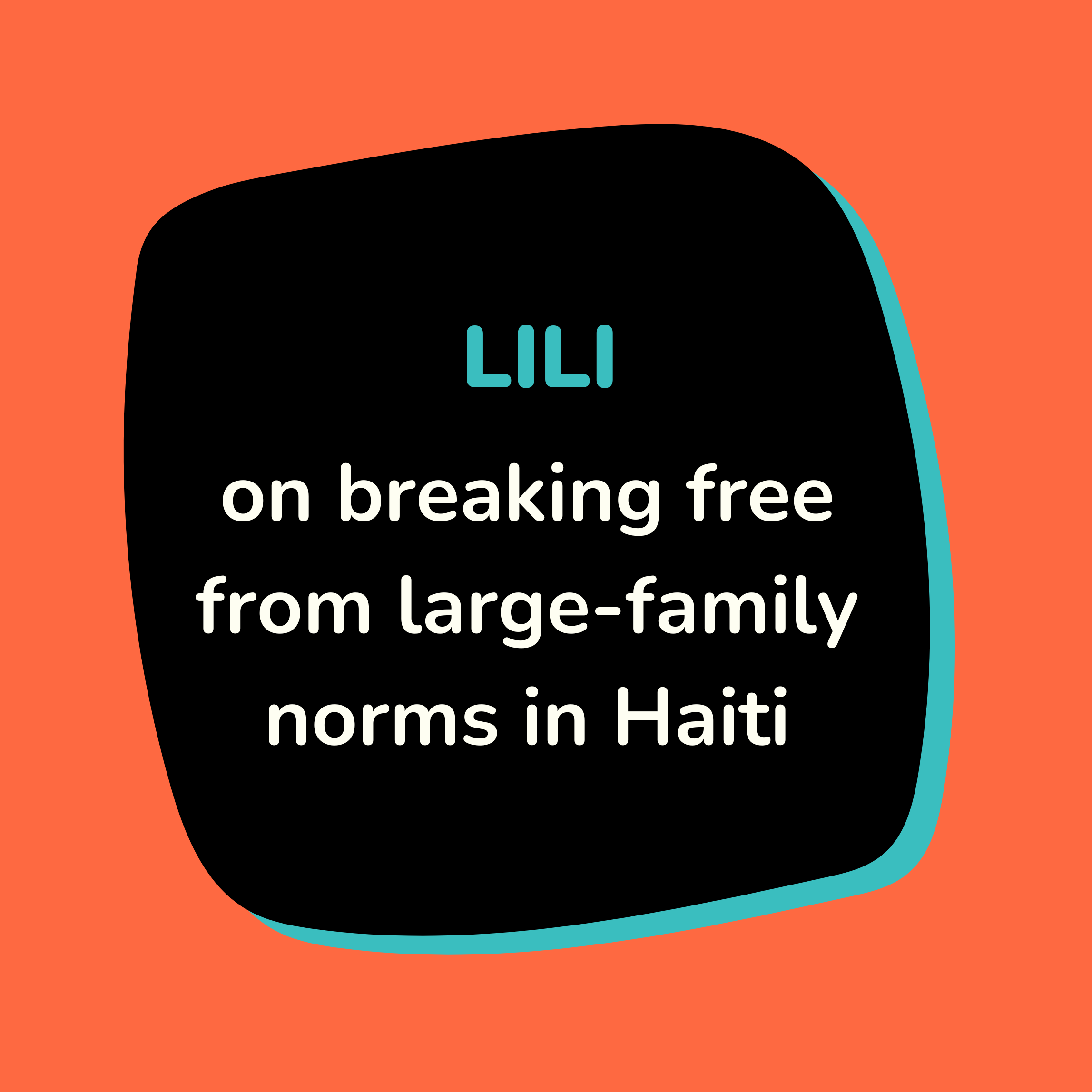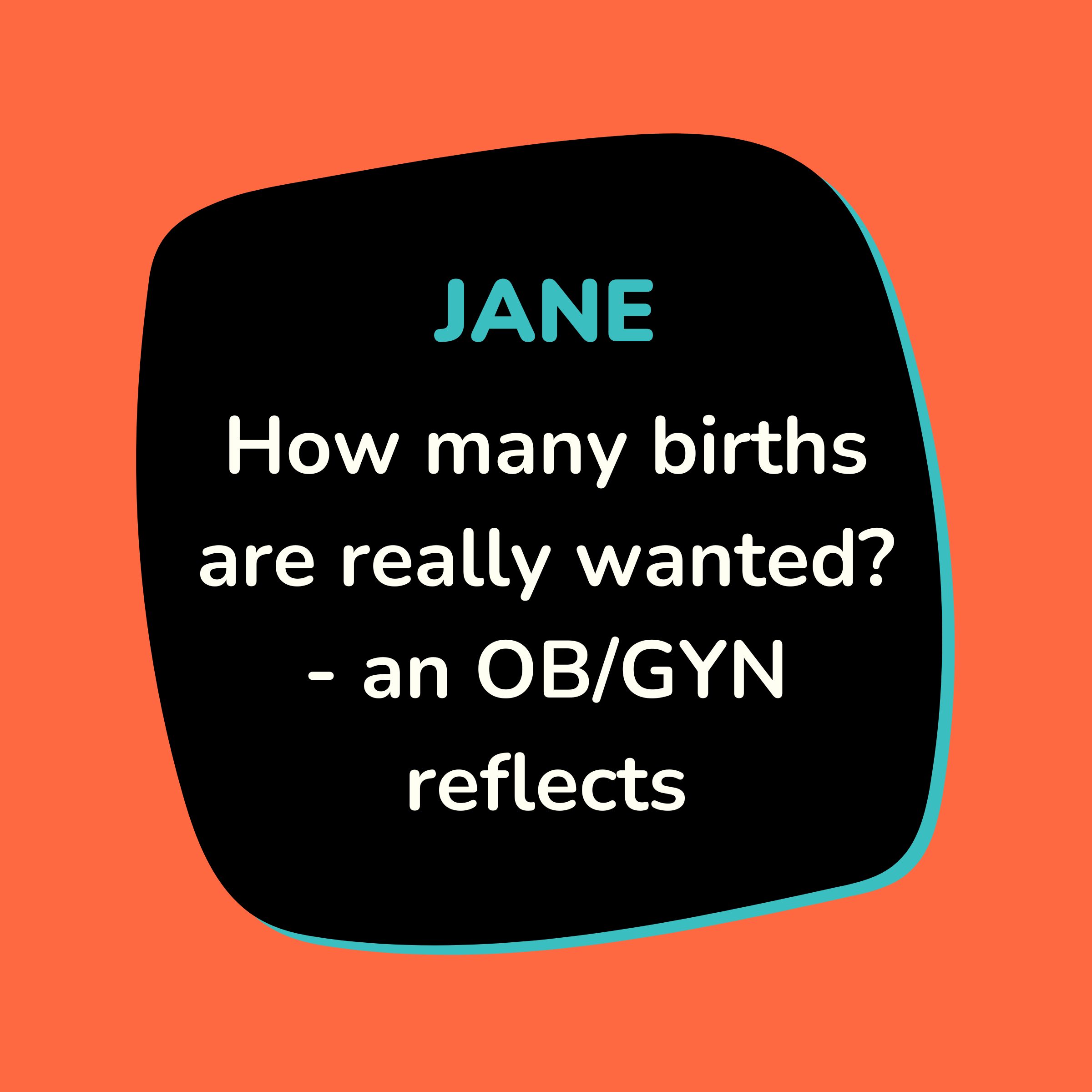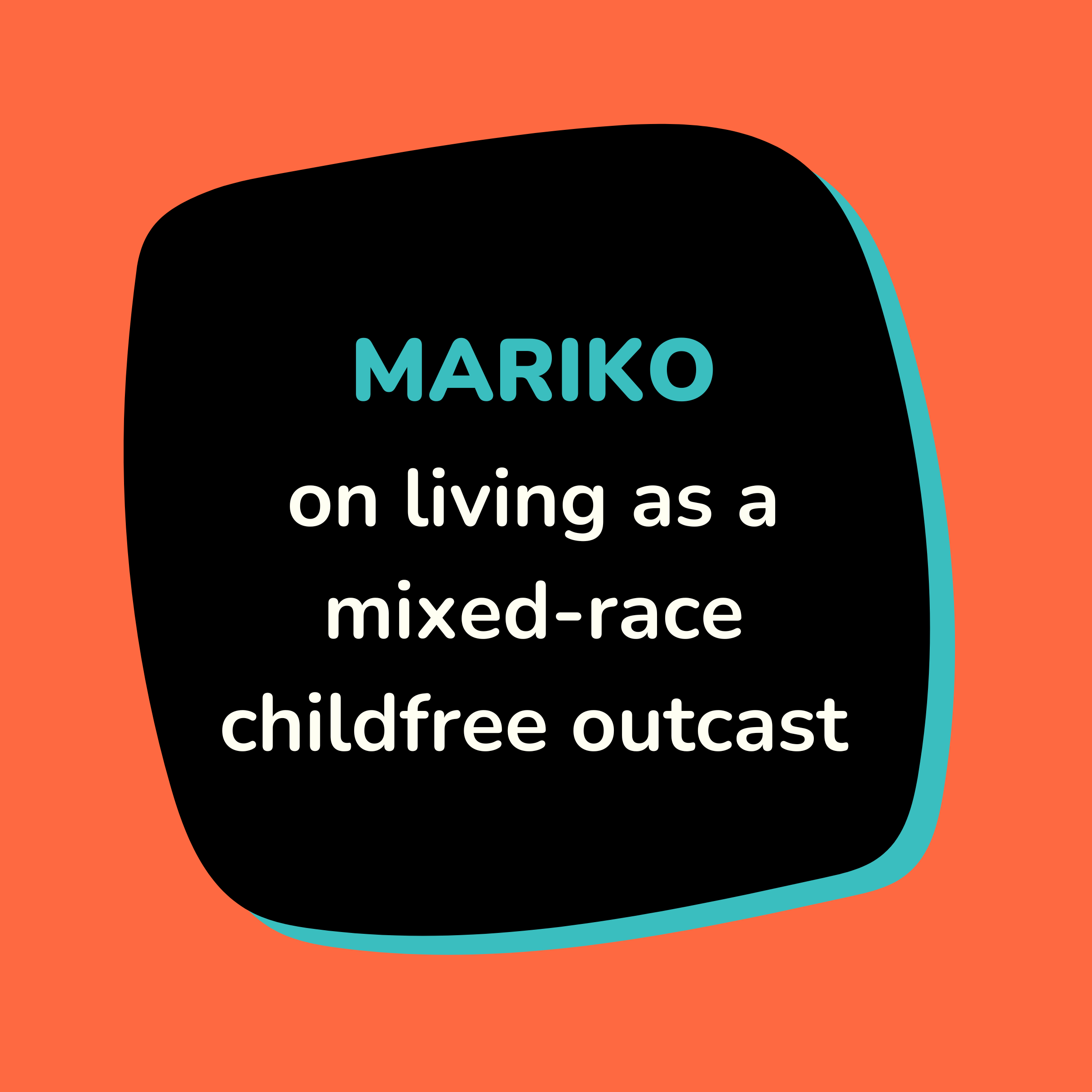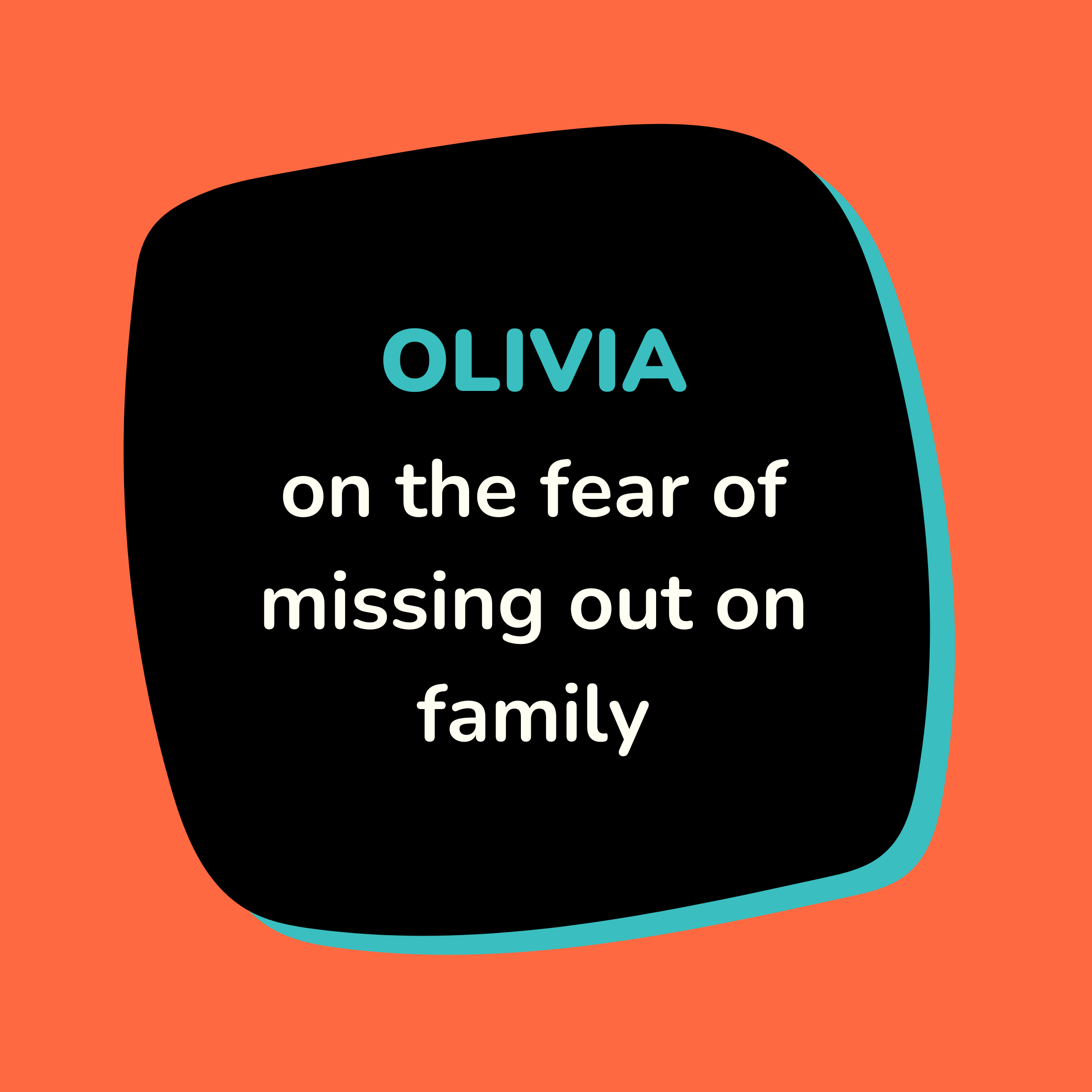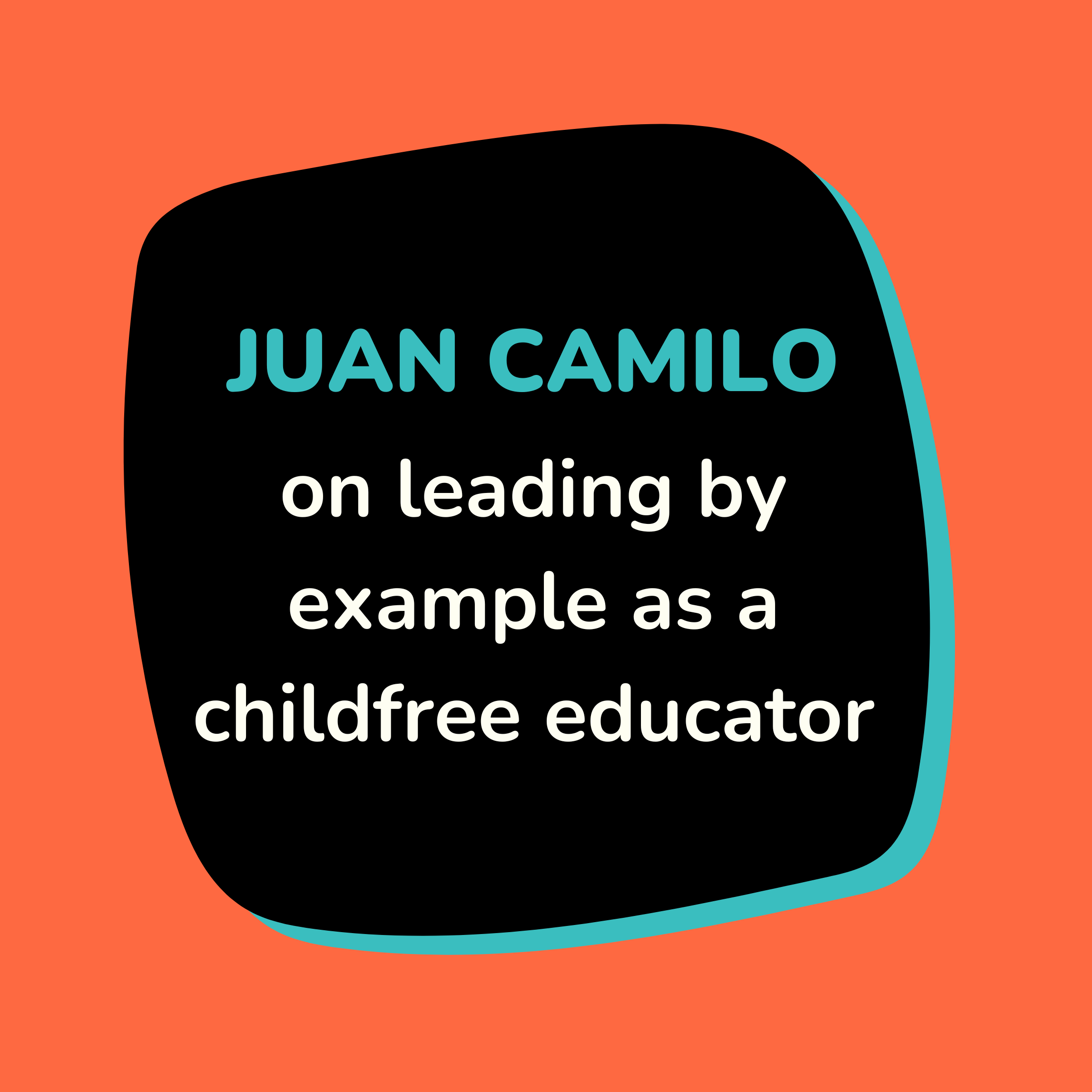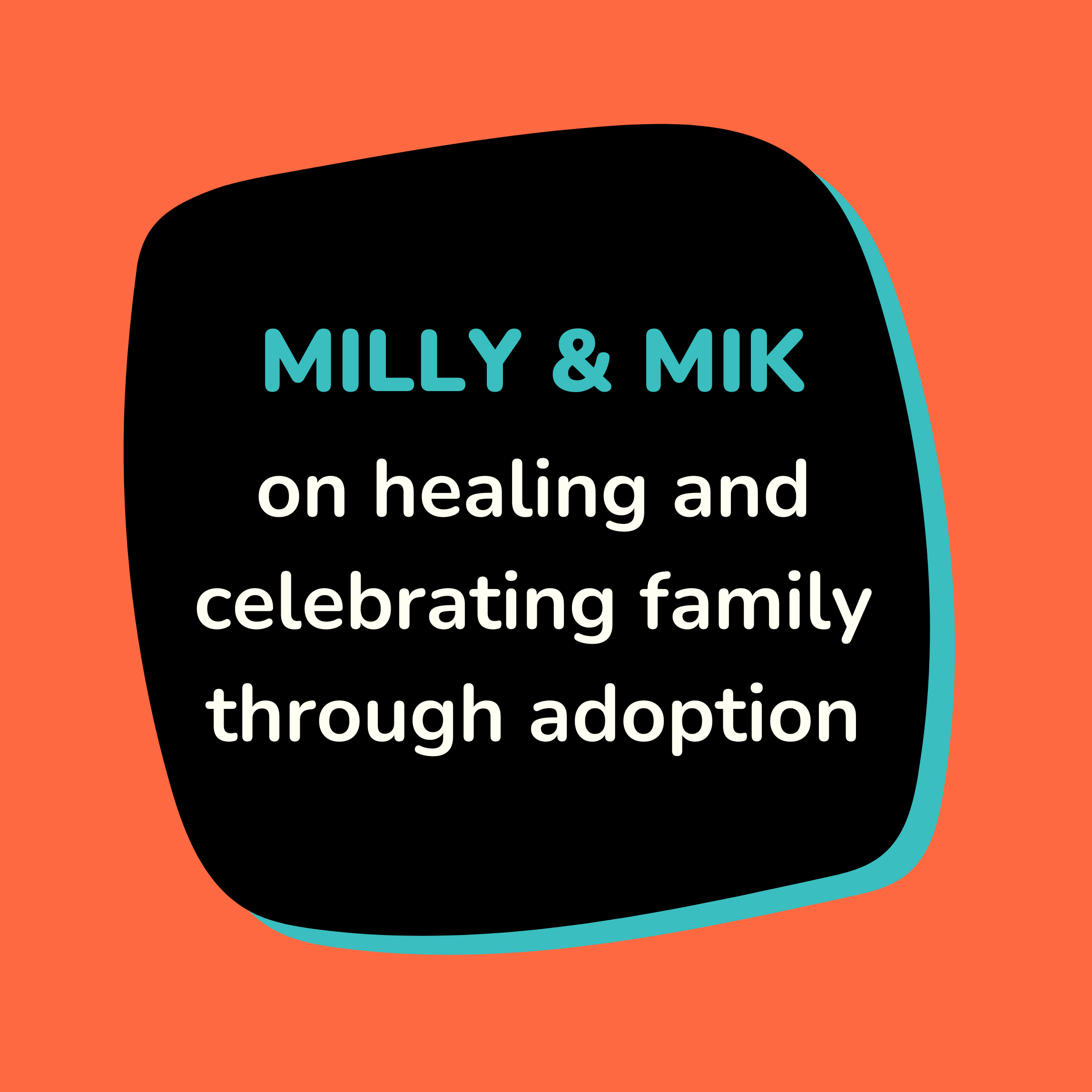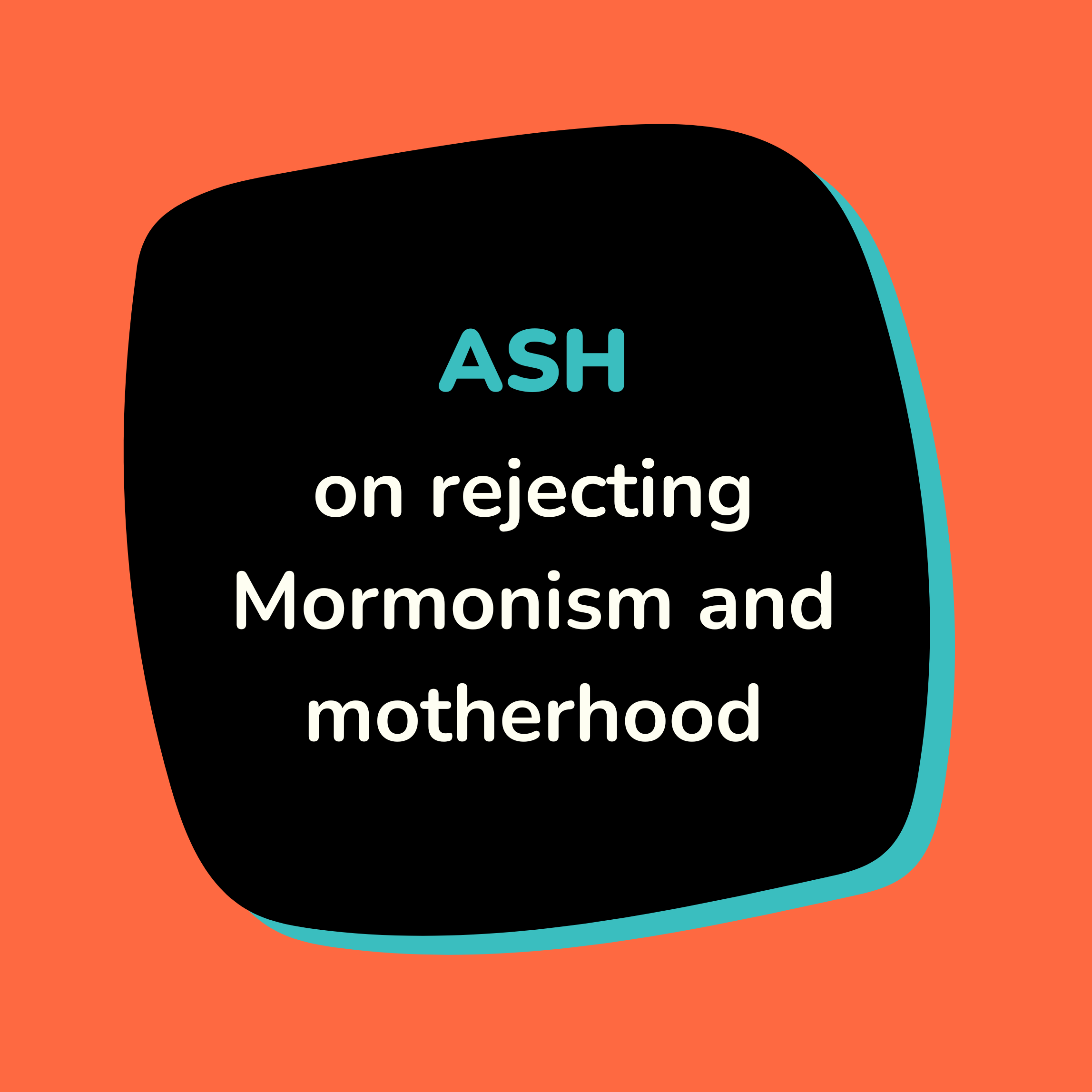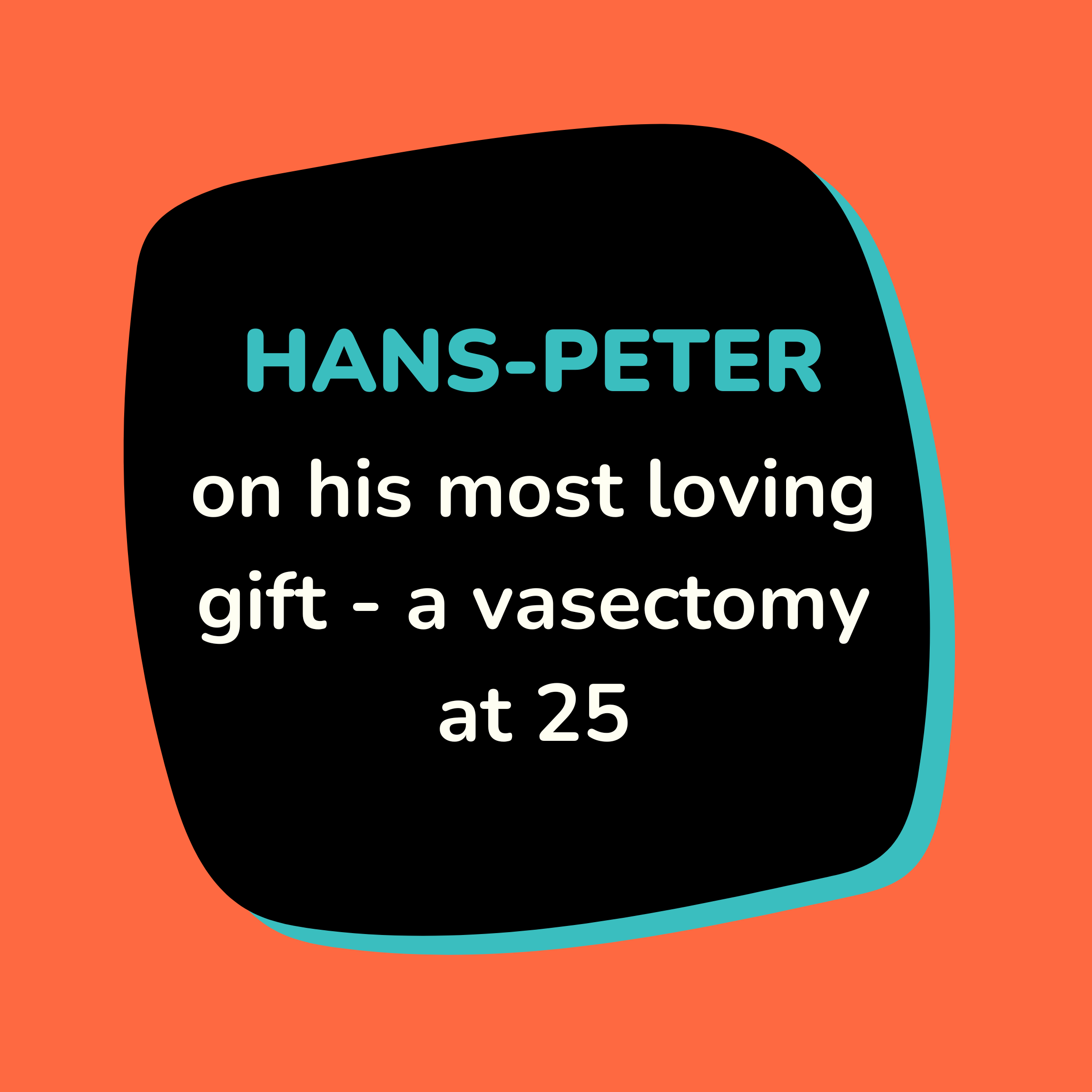Lili - on breaking free from large-family norms in Haiti
Born and raised in Haiti, and now living in the US, Lili shares her story about her pronatalist upbringing in which having large families was the norm. After many years of dreading motherhood, she learned about the choice to not have children. Today, Lili is happily childfree and is using her spare time and resources to support others in her family and community.
-
Lili 0:00
When I was thinking about my future, I was mostly thinking about financial independence. How do I have my own money? How do I improve my education? I rarely even thought about having children. And when I eventually got married, I kept postponing having the discussion. And it would be like, okay, once I pay my student loans, okay? Once we have a down payment for a house. okay? And so by the time we were 35 years old, and I said to my husband, every time I think about having a child, I was filled with dread and anxiety and panic, whereas every other decisions I've ever made in my life, I was so sure of why is this one thing with this person that I love, I'm so scared of doing it? And that's when I realized, okay, it's probably because it's not a natural fit for you. If you force it, you are going to have a nervous breakdown, because even thinking about it was making me anxious.
Nandita Bajaj 1:01
That was today's guest, Lili. Hello everyone, and thank you for joining me on this journey. My name is Nandita Bajaj, and I'm the host of Beyond Pronatalism, Finding fulfillment with or without kids, an interview series in which, through intimate conversations with women and men from diverse backgrounds, I explore how they are courageously and creatively navigating pronatalism, the often unspoken pressures to have children, whether from family, friends or the culture at large. In each episode, I dive into personal stories with people who are forging unconventional pathways to fulfillment, including redefining what family means to them, whether that means being childfree or childless, having biological kids adopting or fostering children or animals, or creating close-knit communities of friends and loved ones. Hi Lili, and welcome to our podcast. I'm so happy to have you here.
Lili 2:00
Hi Nandita, thank you for having me.
Nandita Bajaj 2:02
And Lili since we've talked briefly, you grew up in Haiti until your late teens, and then you've been living in the US ever since. I'd love for you to begin by talking about how pronatalism, these institutional and social pressures to have children, showed up within your cultural context.
Lili 2:25
Okay, so I'm not an expert on Haiti, everything Haitian, per se, but I can talk about and share my lived experience and what I've observed over the years being part of that society. So in Haiti, pronatalism is deeply intertwined with every aspect of life. So we're talking about culturally, socially, religiously, so there's not one part of life that is not touched by pronatalism. So we place a strong emphasis on family and family ties in Haiti. For instance, from the part of the country that we're from, I can just ask the person their last name and find out about the person’s, like, backstory. Family ties is a big deal in my country. Everyone's a cousin of someone's cousins, third generation cousins, whatever. So having children is seen as a way to strengthen familial bond and ensure, like, support network. But I don't think people consciously build their family that way, it just happens naturally. So for instance, it's not uncommon to see, like, a woman who is involved in a relationship with a man that's sometimes unavailable, and the woman feels like the best way to secure their relationship with that man is to have a child with the man. In our society, it's not unusual for a man to have multiple children with different women, even if the man is married, so even if the men cannot provide for the child, I feel that a lot of women feel secure in that relationship if they have a child, it's like the bond that they have. And also, for instance, if a family member runs into like a hardship, it's just natural that the extended family chip in and become part of that. So either they can take in the child or help the child with school fees or whatever they can do to participate in that. So family values is like such a big deal in Haiti - family ties, so having large families is very common. And having many children is considered a blessing, a gift from God, for instance. And I remember, for instance, growing up there, I had so many cousins that I barely had any friends outside of the family. The family is so big on both sides. And I think the reason why these large families do happen, there is a direct relationship between that and religious influence in the culture. For instance, although Haiti is very Catholic, there's a saying in my country that we are 50% Catholic, 50% Protestant, but 100% Voodooism, meaning that we all go to church, but voodoo takes a very strong part in our lives. And those religious leaders actively encourage followers to have as many children as they can, to fulfill like a spiritual duty or to carry on the faith. And I remember years ago, I was working with a nonprofit in Haiti and this woman came in on her ninth child, and she was in her early 40s, I believe, and we offered her birth control, but she said, No, I have to talk to my pastor first.
Nandita Bajaj 5:24
Interesting.
Lili 5:25
So, the religious influence is very, very, very strong. And this, in turn, creates this chaos of where you have too many mouths to feed, too many young people with no education, no jobs or prospects, living in a country where, basically, the environment cannot sustain that many people. There is a Catholic church I used to go to in Port au Prince. I'm talking about the 80s and early 90s. And the day masses, the earlier masses, that’s where most of the well-to-do individuals will go; they have maybe around two to four children max and the priest never touched on procreation like he would with the other class of people who come in the afternoon or night masses. When it's the pharmacist, the doctors, the politicians going to church, the topic will be very mild stuff. In the evening, we would have the folks from the domestics, and the message is a little different. It was more pronatalist, more “that's God's-wish” type thing; the message was so strong about carry your lot in life and, and how to to go on when you have a lot of pressure on you. And I remember it because I was friends with the nuns, there was this one nun that I was very close with; she used to take me to masses throughout the week. So sometimes I'd go three times per week to church. I think I was around 14 years old around then.
Nandita Bajaj 6:47
Right. And you grew up within that environment for your early years; how did pronatalism show up for you specifically? And, you’ve moved since then to the US, and what were some of the differences that you saw in this pressure to have children, kind of from both these contexts,
Lili 7:09
I would say it's just something that you automatically would do, you don't even consciously think about it. When I was growing up. I don't know if it was the influence of the nuns - I went to Catholic school. And to me, they embodied independence and freedom, these women - they came from Canada, they were French Canadian nuns, and to go to another country and teach other women, other young girls - that, to me, was independence. When I was thinking about my future, I was mostly thinking about financial independence. How do I have my own money? How do I improve my education? I rarely even thought about having children. Like I said, it could have been because I was so influenced by the nuns there. And when I moved to the States, I focused mainly on having an education - it was a big deal. You might know, as an immigrant child, you either become a doctor, an engineer, or lawyer.
Nandita Bajaj 8:03
That's right.
Lili 8:04
And so to me, that was the main focus. And when I eventually got married, I kept postponing having the discussion, and it would be like, okay, once I pay my student loans, okay, once we have a down payment for the house, okay. And so by that time, we were 35 years old. And I said to my husband, every time I think about having a child, I was filled with dread and anxiety and panic.
Nandita Bajaj 8:26
Right.
Lili 8:26
And I said, whereas every other decision I've ever made in my life, I was so sure of, why is this one thing, with this person that I love - I'm so scared of doing it?
Nandita Bajaj 8:36
Yes
Lili 8:36
And that's when I realized, okay, it’s probably because it's not a natural fit for you. If you force it, you are going to have a nervous breakdown. Because even thinking about it was making me anxious. And also, I saw how hard my parents sacrificed too, you know, they came here with minimal education. My mother worked two jobs her whole entire career here. So it was not interesting to me to work that hard to just raise two human beings.
Nandita Bajaj 9:04
Right.
Lili 9:04
It was a big turn off. So I've said to myself, if I have to work that hard to end up with that. It was just not appealing. So that's one of the reasons why I said to my husband when we were about 35-36. I was like, I don't know if I really want this. And he said, Well, if you don't want it, then I don't want it.
Nandita Bajaj 9:21
Well, that's really such a nice example. Because often, people don't have partners that are supportive of their decision, especially if you're coming from traditional communities like you did, or I did from India, you may not have had the same response from a more traditional family. And so that's really cool that number one, you had the epiphany to know that you could actually choose to not have children. And number two, that you were supported in that choice. And what I'd love to hear is like how did you navigate that decision with your family and your larger culture? And what kind of pushback did you receive, if any, that you weren't fulfilling this expectation?
Lili 10:08
So within my family, there wasn't a lot of pressure per se. The pressure was mostly on education. But having children - they did not really pressure me into that. But, it was expected and thankfully, I had older siblings that already fulfilled that for me. And also I was told by my older sister who's 10 years older than me that I was always a little different. She said, I was like a middle aged woman living in a six-year-old's body. I was always a little different. And I was always pushing the boundaries. I was always doing things a little different than my other siblings who were more obedient. And I think my parents knew; once I told my mom, don't expect any children for me, she never really pushed me on it. But as for other family members who did not know that was my plan, I use humor to defuse what could be a very tense conversation because they all had children too. And I would say to them, I'll give you my account number - start putting the money for the college funds, because they know how expensive it is here. And I'll say, as long as you can sign up for two days a week for babysitting, I'm willing to do it, they'll just laugh it off. Because they know it's true. Because they constantly complain and struggle to find time with their kids or the finances to pay for school fees and stuff like that. And so they know how hard it is. So when I bring this up, they laugh it off, but I don't think that they themselves even thought that was an option.
Nandita Bajaj 11:37
Right. And isn't it interesting that nobody ever asks people who are having children, it's like, why do you want to have children? Instead of why do you not want to have children given that the other decision leads to so many more consequences for the child for people, for planet? I just find it fascinating that people without children have to justify their decision so much more than the others.
Lili 12:05
I think people will find it very offensive if I were to ask them that question. They'll be very offended by that question. But it's as if you don't have the same prestige, the same standing in society. So that's why they feel like they can ask you those questions. But if I were to do the same to them, they'd find it very offensive because it's like a status thing to have a child. And so for them, they’re adults now, so they can ask me who's about the same age as them? Why is it that you don't have the child? It's a big status thing in Haiti to have as many children as possible. Maybe things are changing nowadays. My dad is from a family of seven. And my mom is from a family of four. And so as their siblings had less children, and now their children are having less children. I'm having none at all. So. But I keep telling them it's not because I don't love children. Just because you want something doesn't mean you have to do it. I would love to be an astronaut, but I cannot be an astronaut because I did not prepare for that. And I don't have what it takes to be an astronaut. You can do it. But you don’t have to. But I think a lot of us understand that it's a choice.
Nandita Bajaj 13:18
Yeah, and why is it so tied up with status, do you think?
Lili 13:22
I think that back in the day, 40-50 years ago, it was a very agrarian country. So if you do not have the hands needed for the crops and to sustain your elderly parents, those are the reasons why you would have so many kids, and of course, one family member out of the lots will shine and that one person will lift up the rest of the family. For instance, the Haitian diaspora sent around $4 billion dollars in 2022. That makes up about 22% of Haiti's GDP.
Nandita Bajaj 13:56
Wow.
Lili 13:56
We send $4 billion per year. That's the WHO statistics. So having children is one of the biggest export we have in Haiti, because, you know, the child is your social security, the child is your health insurance, the child is your everything.
Nandita Bajaj 14:15
What happens to people who, say, are unable to have children or don't have children by choice in Haiti? How are they looked at? And in terms of availability and access to family planning services to contraceptives, etc., do people know that they have the ability to choose fewer children or no children?
Lili 14:38
Oh, that's big. It depends on your social status as well as the educational level within your family. So for instance, if you are from a poor background, less educated, people will call you a mule, either as a joke, or as an insult, because mules - they are sterile. But if you have money, and you're well educated, the treatment is different. So things have changed a lot. However, let's start with the access to family planning. We have a lot of NGOs in Haiti providing that, especially for women, you have the IUDs, they provide a lot of the implants, Nexplanon - that you can put under the skin, or the patches. But women - they typically opt for the Nexplanon; IUDs - usually you see that more if a woman is married, but Nexplanon, the one you put under the skin, it's usually people who are sexually active, not married. But a lot of people are afraid for others to see the marks, because this would see them as loose women. And so, you don't want to say out loud that you're on birth control; that means that you're sleeping around if you're not married. What are you doing with birth control, you know? And we don't have too many health centers, they're not well funded, health centers where women can just go and get that, or they have to drive through very gang infested areas to get to those NGOs-run clinics. So you kind of risk your life to get those. Right. And the nicer hospitals, of course, and then you have to pay out of pocket, and it's very expensive, and a lot of women, what they'll do if they end up getting pregnant, you go to the pharmacies, we do have the nicer ones, and you have the ones on the street corners, and you have the guys walking around with a basket full of Penicillin and condoms selling stuff on the streets. And 99% of the time the stuff is expired. So Cytotec, which is abortion medication is sold. Although the pharmacist know not to sell it, but people still get access to them. You can go get the Cytotec and start your own abortions to the woman's detriment, unfortunately, because a lot of the time you have leftover product conception left in the uterus, which then causes bleeding infections and stuff like that.
Nandita Bajaj 16:47
So, not a lot of affordable accessible stuff that's available to everyone quite equally or fairly.
Lili 16:55
No, no, not a lot.
Nandita Bajaj 16:58
Right. And so let's go back to your personal decision to not have children. What was it like when you finally decided that you could choose to not have children and you didn't have to feel this kind of anxiety year after year of, you know, I'm not sure if I want this and then you finally made the decision? How did that feel?
Lili 17:18
First of all, Nandita, I was reading a lot, researching a lot to make sure I wasn't going crazy. Because I said - why do I feel this way? That's unnatural, that's abnormal, that I feel this much anxiety. And I was on YouTube googling things. I'm talking about 2016, researching on YouTube. Why do I feel this way? Before then I remembered I used to even think about spinsters like, that was before I was married. What is aspinster? I did not know you did not have to be a spinster in order not to have children. I thought if I got married, that's what I would have to do. So when I finally found the community online, that's when I started feeling less anxious. And then I'm like, okay, I'm at peace with my decision. My colleagues used to tell me a lot that, you know, you'll be such a great mother, because you are so good with your nieces and nephews and other kids. I said, I know. But I cannot sustain that. When I'm with my nieces and nephews, I go 100% for a month. But I don't think I could do that 24/7 for life, and that's what people need to understand. Just because look cute, doesn't mean you have to do it. I'm like, Yeah, they look good on me. But, however, when they're with the mom, 24/7 mom is yelling, you know why? Because they know those rascals can get on your nerves. But, I absolutely adore the children. I adore kids. But like I said, I don't think I'm fully prepared to commit the time and effort it takes. And I think, because I don't have my own, I'm more available to help my other siblings with their children. And it's my pleasure to help them with their children, to help my cousins with their kids as well, you know. So I'm the auntie that comes in, sprinkle little fairy dust, give you a little break. And then, take off, leave them, and then have my peace, because I feel like I'm the type of person who needs time to recharge. Whenever I see my sister in laws with their kids, it's exhausting. And I feel like I have to sit down in a quiet place to recharge. I cannot be “mommy, mommy, mommy” all the time. And I think it would be exhausting.
Nandita Bajaj 19:18
Now that it's been several years since you've made the decision, and you've been living a childfree life for a number of years. Where are you at with things right now? How is life? Anything you want to share about the benefits of the choice that you've made?
Lili 19:35
So today, I'm more convinced than ever that I've made the right decision. So, it doesn't mean that it's an easy decision, because I have to forgo some experiences to have the life that I have now. So I will never know what it's like to have a motherly bond with a child that grows inside your stomach. But I will not have that experience. So I have to accept that. And that's the experiences that a lot of individuals have. We can't possibly have everything, every experience that the world offers. So we will win some, we will lose some. So that's the mentality I have. And also given the state of the world and the environment, my confidence in my decision is followed by a sense of deep concern for future generations, especially after I became hooked on your podcast. And I was like, okay, I think I made the right decision. And, and I say to people, I'm not a nihilist by any means. I believe strongly that people who desire to have children should have children as long as they've not been coerced to have the child. And, I also strongly believe that the current global population of 8 billion has surpassed what the economy and the environment can sustain comfortably. I think that's the reason why you're seeing all the chaos we're seeing in the world. And as for the benefits, currently my elderly mother is living with me. And she can have whatever she wants. She wants to travel, she wants to go to Florida. I provide that for her. And we are able to save for our future, save for our old age since we're not going to have children, so we are planning accordingly to put enough money aside; that way if we're ever if we ever become, you know, incapacitated in any ways, and we can’t afford to take care of ourselves. And it's very nice to have the means to travel and help others. So, helping others is a big thing for me as well. So I'm so glad that I have the means to do that. I've done that for a lot of family members - helping with medical bills, and paying for school. And this one cousin I love a lot did not have the means to go to university. And the one thing I told her is I will pay the full four-year tuition for you with one condition - I will not pay for courses twice, and you cannot have a child while doing this. And so she agreed. So I paid the full four year tuition for her to attend nursing school. And two years ago, she graduated. So she's so thankful. And she was like, I don't think I can ever repay you. I said you’re going to do the same thing for another girl and your family?
Nandita Bajaj 22:08
That's a beautiful example. Well, Lili, this was such a nice interview, thank you so much for sharing your personal experience of how you've navigated these pressures, and arrived at a decision that you're really happy with, you know, you're leading a fulfilled and meaningful life, and all that you're doing with your extra money and time to help others. So, thank you so much for joining me today. This was such a great interview.
Lili 22:40
Thank you so much for having me. It's my pleasure.
Nandita Bajaj 22:44
That's all for today's episode. Thank you so much for listening. What did you think of this episode? Do you have your own story you'd like to share? Check out the show notes to see how you can get in touch with me. Whether you'd like to share feedback about the show or a particular episode, or whether you'd like to join me on the show to share your own story, I'd love to hear from you. Thank you so much again for joining me today as we collectively discover and celebrate the many different pathways to fulfillment, beyond pronatalism. Beyond Pronatalism is brought to you by Population Balance, the only non profit organization advancing ecological and reproductive justice by confronting pronatalism. This podcast is produced and hosted by me, Nandita Bajaj, with the support of my production team - Josh Wild, Elisabeth Strunk, Alan Ware and Kirsten Stade.
More like this
Share your story!
Would you like to be on the show to share your own story? We’d love to hear from you!
Join our mailing list
Subscribe to our newsletter to be the first to know when a new episode is launched.


